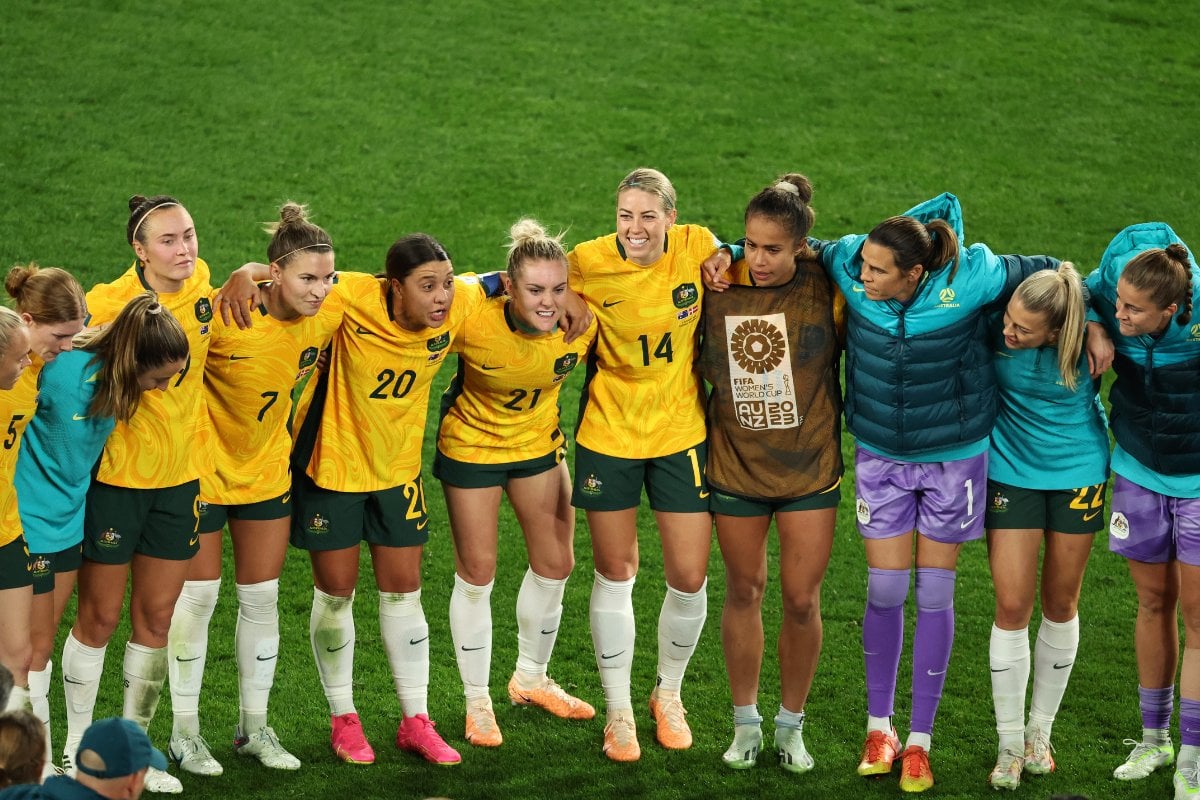
To catch up on all things Matildas and the 2023 Women's World Cup, check out our hub page here.
To be quite frank, my cup of hope for the future was f**king empty before the Women's World Cup.
It was emptied by COVID and further dried out by all the other horrible events I was watching take place across the world. The cost-of-living crisis, increased domestic abuse, women being stripped of their rights and safety in certain places, the seemingly never-ending use of LGBTQIA+ people as political pawns, global warming... As you can tell I was heading towards a pretty nihilistic existence.
And, may I add, this was all coming from me, a person with certain privileges i.e. I'm a white, cis person - can you imagine the experience of others in minorities?
It's safe to say that I needed something big to come and knock the overabundance of pessimistic fog from behind my eyes. My mental health was struggling, and I needed something to celebrate almost as much as I needed to breathe in air as I typed this out. Something monumental that would make marching on feel less... pointless.
Enter, the FIFA Women's World Cup. And then follow up with WINNING THE QUARTER FINAL GAME AGAINST FRANCE!!
No, I am not here to say the Women's World Cup or beating France is going to fix everything bad happening in the world, in fact, we still have a long way to go even in gender equality in football, but perhaps it has given some of us the hope we need to forge ahead. Perhaps this immense representation of women and queer people in the world of sports will trickle down into the other crevices that need this same progress?
Top Comments